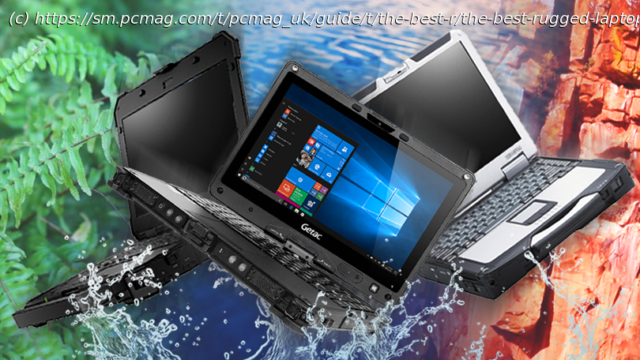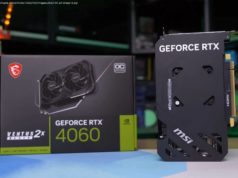Ordinary notebooks are 98-pound weaklings next to the drop-tested, outdoors-loving survivalists known as rugged laptops. Whether you’re getting wet or getting your hands dirty, here’s what you need to know about machines that shrug off abuse and stay productive in the worst environments.
Who’s tougher, Dwayne Johnson or Jason Statham? The answer (obviously, Chuck Norris) is about as inconclusive as advertisements for laptops with vague, overlapping descriptions like “semi-rugged,” “fully rugged,” and “business-rugged.” But the need for notebooks (and tablets) that can take a licking and keep on clicking is very real. Let’s be clear right up front about one thing: When PCMag refers to “rugged laptops,” we’re not talking to business travelers worried about a little turbulence knock-about in an airline overhead compartment. Really rugged laptops are vertical-market dwellers, designed for work in the field or on factory floors. They may be carried by first responders or military personnel, or get mounted on police-car dashboards. They may have to survive being rained on or dropped six feet onto a hard surface, or work through freezing or broiling temperatures, or keep from getting clogged up by clouds of blowing dust or sand. What’s the price you pay for such super-sturdy survivability? One is, indeed, the literal price: Rugged laptops cost a lot more than their civilian counterparts. Two, the weight: A laptop with virtual armor plating can test your biceps to the tune of 10 pounds, an immense burden compared to the three or four pounds of most laptops. That’s why many of the true-blue rugged models come with pop-out carrying handles. Still, for users who need serious computing power in hostile environments, there’s no substitute for a laptop that can laugh off mistreatment that would destroy an ordinary machine. Let’s run through the key things to look for as you shop. And we’ll guide you to reviews of some of our favorite true-rugged laptops. Fasten your seat belts, it’s going to be a bumpy ride. Business Table Stakes: MIL-STD 810G Before we get into brawny machines that can survive six-foot drops and jets of water, we must acknowledge that not all mainstream notebooks are frail and fragile. Some Lenovo ThinkPads, HP EliteBooks, and other business systems are reasonably resistant to bumps and bruises, though they can’t survive high dives or liquids in excess of minor keyboard spills. Even some Chromebooks carry the same designation as these hardy travelers—MIL-STD 810G, which indicates compliance with a series of tests required for the US Department of Defense to consider using a piece of equipment in a military setting. The MIL-STD 810G standard spans over 800 pages and nearly 30 laboratory test methods for challenges ranging from weather (high and low temperatures, rain, and humidity) to physical forces (acceleration, vibration, and shock). Few computer vendors push their products over every hurdle that the standard posits, including such tortures as gunfire-recoil shock, icing or freezing rain, whether a laptop might spark an explosion in flammable-gas atmospheres, and—wait for it—resistance to fungus. Rather, the manufacturer may note that the system has passed, say,10 or 12 MIL-STD tests. The trouble with a MIL-STD 810G sticker on a laptop’s box or a vendor’s website is that it doesn’t tell you enough.






